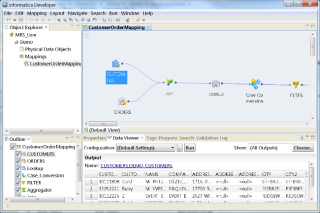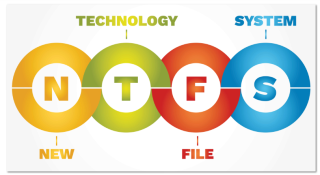Cómo instalar Blacklistd en FreeBSD 11.1
Introducción Cualquier servicio que esté conectado a Internet es un objetivo potencial para ataques de fuerza bruta o acceso injustificado. Hay herramientas como fail2ba
NodeBB is a Node.js based forum software. It utilizes web sockets for instant interactions and real-time notifications. The NodeBB source code is publicly hosted on Github. This guide will walk you through NodeBB installation process on a fresh FreeBSD 12 Vultr instance, by using Node.js, MongoDB as a database, Nginx as a reverse proxy, and Acme.sh for SSL certificates.
NodeBB requires the following software to be installed:
A/AAAA records set upCheck the FreeBSD version.
uname -ro
# FreeBSD 12.0-RELEASE
Ensure that your FreeBSD system is up to date.
freebsd-update fetch install
pkg update && pkg upgrade -y
Install necessary packages if they are not present on your system.
pkg install -y sudo vim unzip wget git bash socat gcc8 pkgconf vips
Create a new user account with your preferred username (we will use johndoe).
adduser
# Username: johndoe
# Full name: John Doe
# Uid (Leave empty for default): <Enter>
# Login group [johndoe]: <Enter>
# Login group is johndoe. Invite johndoe into other groups? []: wheel
# Login class [default]: <Enter>
# Shell (sh csh tcsh nologin) [sh]: bash
# Home directory [/home/johndoe]: <Enter>
# Home directory permissions (Leave empty for default): <Enter>
# Use password-based authentication? [yes]: <Enter>
# Use an empty password? (yes/no) [no]: <Enter>
# Use a random password? (yes/no) [no]: <Enter>
# Enter password: your_secure_password
# Enter password again: your_secure_password
# Lock out the account after creation? [no]: <Enter>
# OK? (yes/no): yes
# Add another user? (yes/no): no
# Goodbye!
Run the visudo command and uncomment the %wheel ALL=(ALL) ALL line, to allow members of the wheel group to execute any command.
visudo
# Uncomment by removing hash (#) sign
# %wheel ALL=(ALL) ALL
Now, switch to your newly created user with su.
su - johndoe
NOTE: Replace johndoe with your username.
Set up the timezone.
sudo tzsetup
NodeBB is driven by Node.js, and so it needs to be installed. The installation of the current LTS version of Node.js is recommended.
Install Node.js and npm.
sudo pkg install -y node10 npm-node10
Check the versions.
node -v && npm -v
# v10.15.3
# 6.9.0
MongoDB is the default database for NodeBB.
Install MongoDB.
sudo pkg install -y mongodb40
Check the version.
mongo --version | head -n 1 && mongod --version | head -n 1
# MongoDB shell version v4.0.6
# db version v4.0.6
Enable and start MongoDB.
sudo sysrc mongod_enable=yes
sudo service mongod start
Create a database and user for NodeBB.
Connect to MongoDB first.
mongo
Switch to the built-in admin database.
> use admin
Create an administrative user.
> db.createUser( { user: "admin", pwd: "<Enter a secure password>", roles: [ { role: "readWriteAnyDatabase", db: "admin" }, { role: "userAdminAnyDatabase", db: "admin" } ] } )
NOTE: Replace the placeholder <Enter a secure password> with your own selected password.
Add a new database called nodebb.
> use nodebb
The database will be created and context switched to nodebb. Next create the nodebb user with the appropriate privileges.
> db.createUser( { user: "nodebb", pwd: "<Enter a secure password>", roles: [ { role: "readWrite", db: "nodebb" }, { role: "clusterMonitor", db: "admin" } ] } )
NOTE: Again, replace the placeholder <Enter a secure password> with your own selected password.
Exit the Mongo shell.
> quit()
Restart MongoDB and ensure that the administrative user created earlier can connect.
sudo service mongod restart
mongo -u admin -p your_password --authenticationDatabase=admin
Install Nginx.
sudo pkg install -y nginx
Check the version.
nginx -v
# nginx version: nginx/1.14.2
Enable and start Nginx.
sudo sysrc nginx_enable=yes
sudo service nginx start
NodeBB by default runs on port 4567. To avoid typing http://example.com:4567, we will configure Nginx as a reverse proxy for the NodeBB application. Every request on port 80 or 443, if SSL is used, will be forwarded to port 4567.
Run sudo vim /usr/local/etc/nginx/nodebb.conf and populate it with the basic reverse proxy configuration below.
server {
listen [::]:80;
listen 80;
server_name forum.example.com;
root /usr/share/nginx/html;
client_max_body_size 50M;
location /.well-known/acme-challenge/ {
allow all;
}
location / {
proxy_set_header X-Real-IP $remote_addr;
proxy_set_header X-Forwarded-For $proxy_add_x_forwarded_for;
proxy_set_header X-Forwarded-Proto $scheme;
proxy_set_header Host $http_host;
proxy_hide_header X-Powered-By;
proxy_set_header X-Nginx-Proxy true;
proxy_pass http://127.0.0.1:4567;
proxy_redirect off;
# Socket.IO Support
proxy_http_version 1.1;
proxy_set_header Upgrade $http_upgrade;
proxy_set_header Connection "upgrade";
}
}
In the above config, update the server_name directive with your domain/hostname.
Save the file and exit with :+W+Q.
Now we need to include nodebb.conf in the main nginx.conf file.
Run sudo vim /usr/local/etc/nginx/nginx.conf and add the following line to the http {} block.
include nodebb.conf;
Check the configuration.
sudo nginx -t
Reload Nginx.
sudo service nginx reload
Securing your forum with HTTPS is not necessary, but it will secure your site's traffic. Acme.sh is a pure unix shell software for obtaining SSL certificates from Let's Encrypt with zero dependencies.
Download and install Acme.sh.
sudo mkdir /etc/letsencrypt
git clone https://github.com/Neilpang/acme.sh.git
cd acme.sh
sudo ./acme.sh --install --home /etc/letsencrypt --accountemail [email protected]
cd ~
Check the version.
/etc/letsencrypt/acme.sh --version
# v2.8.1
Obtain RSA and ECDSA certificates for forum.example.com.
# RSA 2048
sudo /etc/letsencrypt/acme.sh --issue --home /etc/letsencrypt -d forum.example.com --webroot /usr/share/nginx/html --reloadcmd "sudo service nginx reload" --keylength 2048
# ECDSA/ECC P-256
sudo /etc/letsencrypt/acme.sh --issue --home /etc/letsencrypt -d forum.example.com --webroot /usr/share/nginx/html --reloadcmd "sudo service nginx reload" --keylength ec-256
After running the above commands, your certificates and keys will be in:
/etc/letsencrypt/forum.example.com./etc/letsencrypt/forum.example.com_ecc.After obtaining certificates from Let's Encrypt, we need to configure Nginx to use them.
Run sudo vim /usr/local/etc/nginx/nodebb.conf again and configure Nginx as an HTTPS reverse proxy.
server {
listen [::]:443 ssl http2;
listen 443 ssl http2;
listen [::]:80;
listen 80;
server_name forum.example.com;
root /usr/share/nginx/html;
client_max_body_size 50M;
location /.well-known/acme-challenge/ {
allow all;
}
# RSA
ssl_certificate /etc/letsencrypt/forum.example.com/fullchain.cer;
ssl_certificate_key /etc/letsencrypt/forum.example.com/forum.example.com.key;
# ECDSA
ssl_certificate /etc/letsencrypt/forum.example.com_ecc/fullchain.cer;
ssl_certificate_key /etc/letsencrypt/forum.example.com_ecc/forum.example.com.key;
location / {
proxy_set_header X-Real-IP $remote_addr;
proxy_set_header X-Forwarded-For $proxy_add_x_forwarded_for;
proxy_set_header X-Forwarded-Proto $scheme;
proxy_set_header Host $http_host;
proxy_set_header X-NginX-Proxy true;
proxy_pass http://127.0.0.1:4567;
proxy_redirect off;
# Socket.IO Support
proxy_http_version 1.1;
proxy_set_header Upgrade $http_upgrade;
proxy_set_header Connection "upgrade";
}
}
Check the configuration.
sudo nginx -t
Reload Nginx.
sudo service nginx reload
Create a document root directory.
sudo mkdir -p /usr/local/www/nodebb
Change ownership of the /usr/local/www/nodebb directory to johndoe.
sudo chown -R johndoe:johndoe /usr/local/www/nodebb
Navigate to the document root folder.
cd /usr/local/www/nodebb
Clone the latest NodeBB into the document root folder.
git clone -b v1.11.x https://github.com/NodeBB/NodeBB.git .
Run the NodeBB setup command and answer each question when prompted.
./nodebb setup
After NodeBB setup is completed, run ./nodebb start to manually start your NodeBB server.
./nodebb start
After this command, you will be able to access your NodeBB forum instance in a web browser.
When started via ./nodebb start, NodeBB will not automatically start up again when the system reboots. To avoid that, we will need to setup NodeBB as a system service.
If running, stop NodeBB.
./nodebb stop
Install PM2 globally.
sudo npm install pm2 -g
Check the version.
pm2 -v
# 3.5.0
Navigate to the NodeBB document root.
cd /usr/local/www/nodebb
Start NodeBB via PM2.
pm2 start app.js
List the NodeBB process.
pm2 ls
Detect the available init system.
pm2 startup
Copy and paste the ouput of this command in the CLI to set up your startup hook.
Save your process list.
pm2 save
That's it. Your NodeBB instance is now up and running.
Introducción Cualquier servicio que esté conectado a Internet es un objetivo potencial para ataques de fuerza bruta o acceso injustificado. Hay herramientas como fail2ba
Introduction A FAMP stack, which is comparable to a LAMP stack on Linux, is a collection of open-source software that is typically installed together t
Este tutorial le mostrará cómo configurar OpenBSD 5.6 con un disco completamente encriptado en su Vultr VPS. Una nota sobre la parte de cifrado: la mayoría de los centros de datos alrededor de
Usar un usuario sudo para acceder a un servidor y ejecutar comandos a nivel raíz es una práctica muy común entre Linux y Unix Systems Administrator. El uso de un sud
¿Usando un sistema diferente? osTicket es un sistema de tickets de soporte al cliente de código abierto. El código fuente de osTicket está alojado públicamente en Github. En este tutorial
Using a Different System? Osclass is an open source project that allows you to easily create a classified site without any technical knowledge. Its sourc
Using a Different System? Wiki.js is a free and open source, modern wiki app built on Node.js, MongoDB, Git and Markdown. Wiki.js source code is publicl
Using a Different System? Lychee 3.1 Photo Album is a simple and flexible, free and open source photo-management tool which runs on a VPS server. It install
Using a Different System? Fork is an open source CMS written in PHP. Forks source code is hosted on GitHub. This guide will show you how to install Fork CM
Fuera de la caja, los servidores Vultr FreeBSD no están configurados para incluir espacio de intercambio. Si su intención es una instancia de nube desechable, probablemente no necesite
El sistema operativo FreeBSD utiliza UFS (Sistema de archivos Unix) para su sistema de archivos de particiones raíz; también conocido como freebsd-ufs en caso de una actualización
Using a Different System? Selfoss RSS Reader is a free and open source self-hosted web-based multipurpose, live stream, mashup, news feed (RSS/Atom) reade
Using a Different System? Matomo (formerly Piwik) is an open source analytics platform, an open alternative to Google Analytics. Matomo source is hosted o
Using a Different System? TLS 1.3 is a version of the Transport Layer Security (TLS) protocol that was published in 2018 as a proposed standard in RFC 8446
Using a Different System? Introduction Craft CMS is an open source CMS written in PHP. Craft CMS source code is hosted on GitHub. This guide will show yo
¿Usando un sistema diferente? Backdrop CMS 1.8.0 es un sistema de administración de contenido (CMS) simple y flexible, amigable para dispositivos móviles, gratuito y de código abierto que nos permite
¿Usando un sistema diferente? ImpressPages CMS 5.0 es un sistema de gestión de contenido (CMS) simple y efectivo, gratuito y de código abierto, fácil de usar y basado en MVC
Using a Different System? ESpeak can generate text-to-speech (TTS) audio files. These can be useful for many reasons, such as creating your own Turin
¿Usando un sistema diferente? TaskWarrior es una herramienta de gestión de tiempo de código abierto que es una mejora en la aplicación Todo.txt y sus clones. Debido a th
ZPanel, un panel de control de alojamiento web popular, se bifurcó en 2014 a un nuevo proyecto llamado Sentora. Aprende a instalar Sentora en tu servidor con este tutorial.
Aprende cómo instalar Vtiger CRM, una aplicación de gestión de relaciones con el cliente, en CentOS 7 para aumentar tus ventas y mejorar el servicio al cliente.
Esta guía completa le mostrará cómo configurar un servidor Counter-Strike 1.6 en Linux, optimizando el rendimiento y la seguridad para el mejor juego. Aprende los pasos más recientes aquí.
Los ataques de ransomware van en aumento, pero ¿puede la IA ayudar a lidiar con el último virus informático? ¿Es la IA la respuesta? Lea aquí, sepa que la IA es una bendición o una perdición
ReactOS, un sistema operativo de código abierto y gratuito, está aquí con la última versión. ¿Puede satisfacer las necesidades de los usuarios de Windows de hoy en día y acabar con Microsoft? Averigüemos más sobre este estilo antiguo, pero una experiencia de sistema operativo más nueva.
Whatsapp finalmente lanzó la aplicación de escritorio para usuarios de Mac y Windows. Ahora puede acceder a Whatsapp desde Windows o Mac fácilmente. Disponible para Windows 8+ y Mac OS 10.9+
Lea esto para saber cómo la Inteligencia Artificial se está volviendo popular entre las empresas de pequeña escala y cómo está aumentando las probabilidades de hacerlas crecer y dar ventaja a sus competidores.
Recientemente, Apple lanzó macOS Catalina 10.15.4, una actualización complementaria para solucionar problemas, pero parece que la actualización está causando más problemas que conducen al bloqueo de las máquinas Mac. Lee este artículo para obtener más información
13 Herramientas comerciales de extracción de datos de Big Data
Nuestra computadora almacena todos los datos de una manera organizada conocida como sistema de archivos de diario. Es un método eficiente que permite a la computadora buscar y mostrar archivos tan pronto como presiona buscar.






